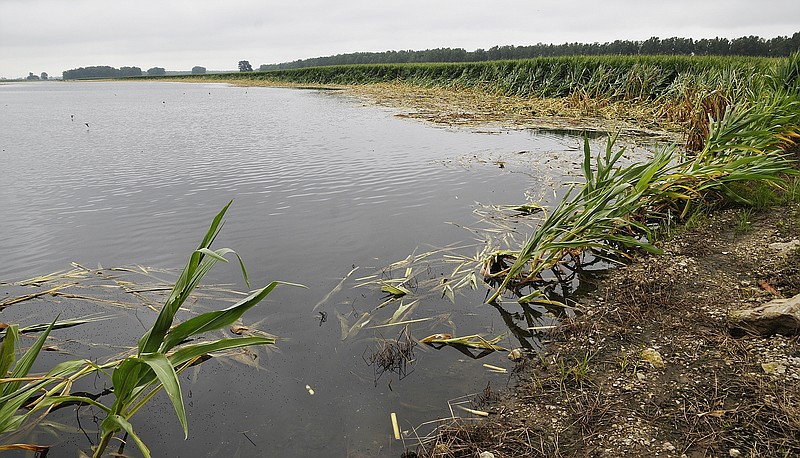Heavy rains earlier this summer will lead to lower yields of corn and and soybeans in Cole County fields.
"Corn will not be as bad as soybeans," said Drew Parmley, executive director of the USDA's Cole/Miller County Farm Service Agency. "The corn crop was 7 to 8 percent below normal planting. The soybean crop was 40 percent below what normally would be planted. It's mainly due to the way the rains came."
This year, Missouri experienced its wettest June since the National Weather Service began keeping records in the late 1800s, the Associated Press reported.
The constant rain kept soybeans from getting in the ground.
Parmley's office assesses crop yields, based on local farmers' crop reports, which ended at the end of July.
"Corn is planted earlier than soybeans," he said. "The fact that some of the bottom ground where corn was established was subjected to flooding will lower the yield on those acres."
Jay Fischer, whose North Jefferson City farm is situated near the Missouri River, said he did get some soybeans planted, but not until July 10-15.
"It was really late, and those plants are about a foot tall now," he said. "We do not need an early frost. If we get that, there won't be much of a crop - and there wasn't going to be much of a crop to start with."
There were 4,500 acres of corn and 7,500 acres of soybeans planted in Cole County this year, Parmley said. In a normal year, there would be 5,000 acres of corn and 12,000 acres of soybeans.
"We have about 250 acres that didn't get planted," Fischer said. "We lost about 20 percent of our corn. We planted early in April, before the heavy rains, but lost plants due to the water pounding too long and they couldn't grow. This is not going to be a banner year like last year."
"Ordinarily, prices would rise because of reduced production. But because other parts of the country where these crops are planted weren't affected as much by heavy rains, prices shouldn't be affected as a whole because of regional weather events," Parmley said. "Still, our guys here are going to hurt because of the low yields in the two crops. Most farmers plant both crops, so everybody is in the same boat."
Looking ahead, the hay and pasture crops look good in Cole County, although the hay also may be reduced because of the wet weather, Parmley said.
"You have to be an optimist if you're a farmer," Fischer said. "You have to think that next year is going to be better."

